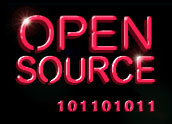
The Free Software Foundation and Software Freedom Law Center released a second working draft for the next iteration of the GNU General Public License (GPL), version 3, which updates digital rights management, patent and other provisions included in the most popular free and open source software license.
The release on Friday coincided with a keynote speech given at the O’Reilly Open Source Convention (OSCON) in Portland, Ore., by Software Freedom Law Center founder and chairman Eben Moglen. He remarked on the GPL3 progress, as well as the need for open source software supporters to mind the legalities and rights that have helped make their community so successful.
“This will be remembered in history as the summer Mr. Gates retired, and Mr. Stallman didn’t,” Moglen said, referring to Microsoft founder Bill Gates, and to Richard Stallman, the father of the free software movement and principal author of the original GPL. “The idea of sharing has triumphed. We are winning, and we will win, but we have more work to do. It isn’t over yet.”
Revision Released
The latest draft of GPLv3 incorporates input from developers and others, who submitted nearly 1,000 suggestions since the initial draft release in January, the FSF reported. The latest draft dials down DRM restrictions, clarifying that such limitations only apply to attempts to prevent users from sharing or modifying GPLv3-covered code. Another change comes in license compatibility; the draft now on the table would allow GPL3-licensed programs to be distributed on file sharing networks such as BitTorrent.
The new draft also introduces a revision of the GNU Lesser GPL, or LGPL, which covers many free and open source software (FOSS) libraries.
Discussion and Dissension
The biggest issues for GPLv3, scheduled for final release early next year, have centered on patent provisions and DRM restrictions, which have drawn criticism from one of the FOSS community’s biggest figures, Linux operating system creator Linus Torvalds. He contends the DRM provisions of GPLv3 may go too far in terms of what they require for hardware, and Torvalds also reportedly complained that the GPLv3 process has not effectively taken input from the community.
Torvalds has stated he will not seek to change Linux licensing to GPLv3 when it is released, instead opting to stay with GPLv2, which does not have the new DRM provisions.
Responding to a question about Torvalds’ position from the audience, Moglen said he highly values Torvalds’ input, and is hopeful the parties can work together rather than against each other on GPLv3.
Freedom Fight
Using the digital home of the future as an example, Moglen stressed the need to keep on guard against infringements on the rights of open source software developers and users.
“The question is, who gets the keys to your home — you or the people that deliver the pizza and the movies?” Moglen asked.
When asked whether the DRM provisions of GPLv3 may scare away enterprises that have increasingly embraced Linux and other open source software, Moglen told LinuxInsider there should not be any concern about being granted freedoms. Moglen explained that GPLv3 aims to protect the rights of organizations and enterprises the same way it protects rights of access and sharing for users.
“It comes back to the who controls the key to your car,” he said. “It turns out, [organizations using GPLv3] get what I think is a pretty useful and straightforward outcome.”
Returning to the theme of open source software’s success and the need to ensure continuing FOSS freedoms to view, share and distribute code, Moglen warned that opponents of FOSS are still a concern.
“Don’t think the powers of the 20th century have gone away. Now the question is, do they acknowledge that users have rights? For this, we need licenses. We need new rules,” Moglen stated.

















































